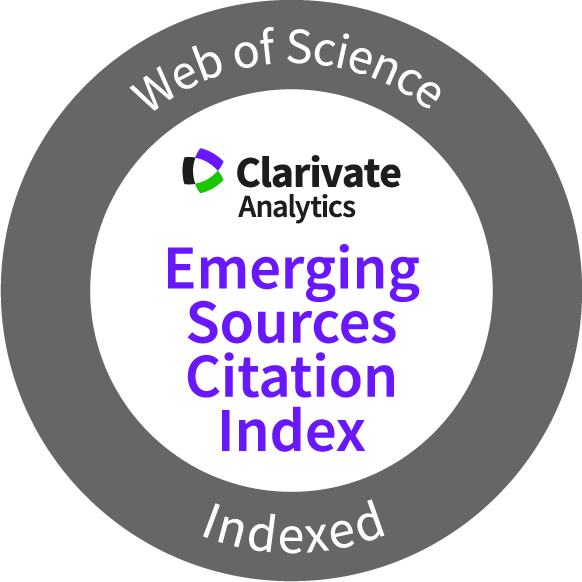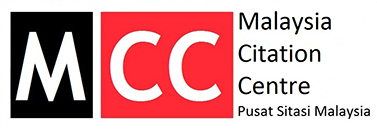GENETIC ANALYSIS OF SUMATRAN ELEPHANTS IN SEBLAT NATURAL ECOTOURISM PARK BASED ON PARTIAL OF MITOCHONDRIAL CYTOCHROME B GENE
Keywords:
Cytochrome b, genetic diversity, mitochondrial DNA, Sumatran elephantAbstract
Sumatran elephant (Elephas maximus sumatranus Temminck, 1847) is one of the Asian elephant sub-species distributed in Sumatera Island and classified as endangered species due to hunting and high habitat fragmentation. This study aimed to analyze the genetic relationship of Sumatran elephants based on the mitochondrial cytochrome b gene (Cyt b). Blood samples were collected from 11 elephants in Seblat Natural Ecotourism Park. Based on mt-DNA Cytochrome b gene analysis, low genetic diversity was found in the Sumatran elephant population, indicated by 99-100% sequence similarity among elephant samples. Phylogenetic analysis showed that all elephants were in the same clade and has a close relationship with Borneo elephants. Additionally, the Median-joining network illustrated only two haplotypes in the Sumatran elephant population. The low genetic diversity of the Sumatran elephant indicates that a strategic breeding program should be seriously taken into account to prevent the Sumatran elephant from extinction.
Downloads
Metrics
References
Ahlering, M.A., Hedges, S., Johnson, A., Tyson, M., Schuttler, S.G. & Eggert, L.S. 2011. Genetic diversity, social structure, and conservation value of the elephants of the Nakai Plateau, Lao PDR, based on non-invasive sampling. Conservation Genetics, 12(2): 413-422. DOI: https://doi.org/10.1007/s10592-010-0148-y
Allendorf, F.W., Luikart, G.H. & Aitken, S.N. 2012. Conservation and the genetics of populations, 2nd Ed. Wiley-Blackwell, New Jersey.
Elliza, M.N., Shukor, M.N., Othman, N. & MdZain, B.M. 2015. Haplotype distribution among endangered Asian elephants (Elephas maximus) in Peninsular Malaysia. Malaysian Applied Biology, 44(2): 129-135.
Frankham, R., Ballou, J.D. & Briscoe, D.A. 2010. Introduction to conservation genetics. 2nd ed. Cambridge, U. K. Press Syndicate for the University of Cambridge. DOI: https://doi.org/10.1017/CBO9780511809002
Fernando, P., Pfrender, M.E., Encalada, S. & Lande, R. 2000. Mitochondrial DNA variation, phylogeography and population structure of the Asian Elephant. Journal Heredity, 84(3): 362-372. DOI: https://doi.org/10.1046/j.1365-2540.2000.00674.x
Fernando, P., Vidya, T.N.C., Payne, J., Stuewe, M., Davison, G., Alfred, J.R., Andau, M., Bosi, E., Kilbourn, A. & Melnick, D.J., 2003. DNA analysis indicates that Asian elephants are native to Borneo and are therefore a high priority for conservation. PLoS Biology, 1: 110–115. DOI: https://doi.org/10.1371/journal.pbio.0000006
Fleischer, R.C., Perry, E.A., Muralidharan, K., Stevens, E.E. & Wemmer, C.M. 2001. Phylogeography of the Asian elephant (Elephas maximus) based on mitochondrial DNA. Evolution, 55: 1882–1892. DOI: https://doi.org/10.1111/j.0014-3820.2001.tb00837.x
Gopala, A., Hardian, O., Sunarto, Sitompul, A., Williams, A., Leimgruber, P., Chambliss, S.E., & Gunaryadi, D. 2011. Elephas maximus ssp. sumatranus. The IUCN Red List Of Threatened Species. e.T199856A9129626. http://www. iucnredlist.org/
Habel, J.N. & Zachos, F.E. 2013. Past population history versus recent population decline – Founder effects in island species and their genetic signatures. Journal of Biogeography, 40(1): 206-207. DOI: https://doi.org/10.1111/jbi.12017
Heber, S., Varsani, A., Kuhn, S., Girg, A., Kempenears, B. & Briskie, J. 2012. The genetic rescue of two bottlenecked South Island robin populations using translocations of inbred donors, in: Proceedings of the Royal Society B: Biological Science 280, pp. 1-8. DOI: https://doi.org/10.1098/rspb.2012.2228
Hermes, R., Saragusty, J., Goritz, F., Bartels, P., Potier, R., Baker, B., Streich, W.J. & Hildebrandt, T.B. 2013. Freezing African elephant semen as a new population management tool. PLoS One, 8(3): 1-8. DOI: https://doi.org/10.1371/journal.pone.0057616
Kumar, S., Stecher, G., Li, M., Knyaz, C. & Tamura, K. 2018. MEGA X: Molecular evolutionary genetics analysis across computing platforms. Molecular Biology and Evolution, 35: 1547-1549. DOI: https://doi.org/10.1093/molbev/msy096
Lah, F.E.C., Win, A.T., Ahamad, M. & Ming, H.T. 2013. PCR amplification of mitochondrial Cytochrome b gene of animals in Malaysia. Asian Pacific Journal of Tropical Biomedicine, 5: 1064-1071.
Lee, E.J., Lee, Y.H., Moon, S.H., Kim, N.Y., Kim, S.H., Yang, M.S., Choi, D.H. & Han, M.S. 2013. The identification of elephant ivory evidences of illegal trade with Mitochondrial Cytochrome b gene and Hypervariable D-Loop region. Journal of Forensic and Legal Medicine, 20(3): 174-178. DOI: https://doi.org/10.1016/j.jflm.2012.06.014
MacKinnon, K., Hatta G., Halim H. & Mangalik A. 1996. The Ecology of Kalimantan. Periplus Editions Ltd, Hong Kong. pp. 802.
Masstor, N.H., Samat, A., Shukor, M.N. & Md-Zain, B.M. 2014. Molecular phylogeny of the Bamboo sharks (Chiloscyllium spp.). BioMed Research International, ID: 213896: 1-9. DOI: https://doi.org/10.1155/2014/213896
Qiptiyah, M., Pudyatmoko, S., Widyatmoko, A., Imron, M.A. & Nurtjahjaningsih, I. 2019. Cytochrome b Mitochondrial DNA characteristic
from non-invasive samples of wild population Javanese Banteng (Bos javanicus d’Alton,1823). Biodiversitas, 20(2): 350-355. DOI: https://doi.org/10.13057/biodiv/d200207
Sulandari, S. & Zein, M.S.A. 2012. Mitochondrial DNA variation of the Sumatran elephant populations in Sumatera, Indonesia. Biotropia, 19(2): 92-102. DOI: https://doi.org/10.11598/btb.2012.19.2.250
Vidya, T.N.C., Sukumar, R. & Melnick, D.J. 2011. Range-wide phylogeography of the Asian elephant (Elephas maximus) based on mitochondrial DNA. Proceedings of the Royal Society of London B, 278: 893-902.
Virnarenata, E., Rustiati, E.L., Priyambodo, P., Srihanto, E.A. & Pratiwi, D.N. 2021. Identification and characterization of COI gene in female Sumatran elephant (Elephas maximus sumatranus) in elephant training centre, Way Kambas National Park. Biovalentia, 7(1): 1-4. DOI: https://doi.org/10.24233/biov.7.1.2021.175
Wibowo, D.S., Widayanti, R., Asvan, M., Restanti, P.D. & Wijayanto, W. 2021. Molecular study on mtDNA COX2 gene of Sumatran elephant (Elephas maximus sumatranus). Biodiversitas, 22(2): 1063-1068. DOI: https://doi.org/10.13057/biodiv/d220263
WWF. 2008. Sumatran Elephant (Elephas maximus sumatrensis) [WWW DOCUMENT]. URL https://www.worldwildlife.org/species/sumatranelephant (accessed 5.15.22).
Zhong, X., Wang, N., Hu, D., Wang, J., Liu, T., Gu, X., Wang, S., Peng, X. & Yang, G. 2014. Sequence analysis of Cyt b gene in Echinococcus granulosus from Western China. Korean Journal of Parasitology, 52(2): 205-209. DOI: https://doi.org/10.3347/kjp.2014.52.2.205
Published
How to Cite
Issue
Section
Any reproduction of figures, tables and illustrations must obtain written permission from the Chief Editor (wicki@ukm.edu.my). No part of the journal may be reproduced without the editor’s permission





















